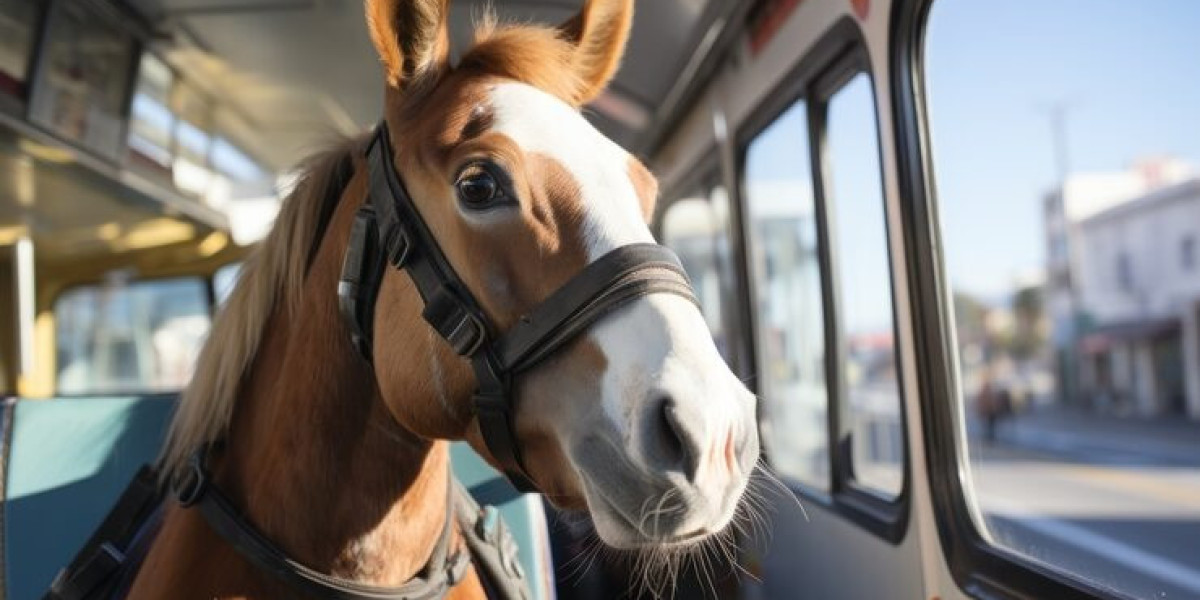Transporting horses across long distances requires far more than simply loading them into a trailer and setting out on the road. Horses are highly sensitive animals, and their health, comfort, and safety must be carefully prioritized throughout the entire process. Whether you are relocating, attending competitions, or moving to a new training facility, planning for equine travel involves preparation, trust, and knowledge. This guide will explore everything you need to know about moving horses safely across the country, from understanding equine needs to selecting the right transport service and preparing your horse for the journey.
Understanding the Importance of Proper Equine Transport
Horses are athletes, companions, and investments. When moving them across states, their physical and emotional well-being can be significantly affected by travel. Long hours on the road can cause stress, dehydration, fatigue, and in some cases, illness. A well-structured transport plan is essential to minimize these risks. Unlike small pets, horses require large, well-ventilated trailers, careful handling, and frequent monitoring. Professional handlers understand equine body language and behavior, ensuring horses stay calm and secure during long journeys.
The welfare of your Nationwide horse transportation should always be the top priority. Proper rest stops, clean water, quality hay, and controlled environments during travel create conditions that allow horses to arrive healthy and ready to perform or settle into their new surroundings.
Choosing the Right Transport Service
When it comes to long-distance journeys, selecting a reputable transport company makes a significant difference. Not all services provide the same level of care or expertise. Here are several qualities to look for when evaluating a transportation provider:
1. Experience with Long-Distance Travel
Companies that specialize in equine travel across the country understand how to navigate routes efficiently while prioritizing horse health. Experience translates to fewer delays, smoother transitions, and knowledgeable responses to any issues that arise.
2. Well-Maintained Trailers and Vehicles
The condition of the transport vehicle directly impacts horse safety. Trailers should be spacious, clean, and equipped with proper ventilation. Suspension systems must reduce vibration, and dividers should allow horses enough room to balance comfortably.
3. Trained and Compassionate Handlers
Skilled drivers and handlers play a vital role in safe travel. Horses need calm, patient handling, especially during loading and unloading. Professional teams understand how to keep horses relaxed and recognize early signs of stress or discomfort.
4. Safety and Compliance
A reliable provider will follow state and federal regulations for animal transport. This includes health documentation, regular inspections, and adherence to guidelines that protect both horses and handlers.
Preparing Your Horse for Travel
Preparation is just as important as the journey itself. Horses that are conditioned and ready for transport adapt more easily to being on the road. Below are some key steps to ensure your horse is prepared:
1. Health Check
Before travel, schedule a veterinary exam to confirm your horse is fit for transport. The veterinarian may recommend updated vaccinations and provide a health certificate, which is often required when crossing state lines.
2. Hydration and Feeding
Hydration is crucial for horses in transit. Ensure your horse is well-hydrated before the trip and offer access to clean water during rest stops. Feeding small amounts of hay during travel helps keep the digestive system functioning properly.
3. Travel Conditioning
If your horse has limited experience with trailers, spend time acclimating them before a long trip. Short practice rides can reduce anxiety and build confidence.
4. Protective Gear
Consider using shipping boots, tail wraps, or blankets to protect your horse during the journey. These items guard against scrapes and support joints during long hours of standing.
What to Expect During the Journey
Understanding the transport process helps horse owners stay confident and reassured while their animals are on the road. Most professional services provide updates throughout the trip, so you know your horse’s condition and location.
1. Regular Rest Breaks
Horses need breaks to relax, rehydrate, and eat. Experienced transporters plan rest stops every few hours, ensuring horses can lower stress levels and avoid fatigue.
2. Monitoring Health
Handlers frequently check vital signs and behavior during the trip. Any signs of colic, dehydration, or stress are addressed immediately.
3. Climate Control
Extreme heat or cold can be dangerous for horses. Well-equipped trailers maintain proper airflow and regulate temperature, reducing risks associated with weather changes.
Arrival and Post-Travel Care
Once your horse arrives, it is important to manage recovery carefully. Long journeys can leave horses tired and in need of gradual reintroduction to normal routines.
1. Hydration and Feeding
Offer fresh water immediately, but allow your horse to drink gradually to prevent gulping. Provide small hay portions before returning to regular feeding schedules.
2. Rest and Observation
Give your horse time to rest in a comfortable stall or paddock. Monitor for signs of colic, respiratory issues, or unusual behavior. Some horses may experience slight weight loss or stiffness, which typically resolves with rest.
3. Gentle Exercise
After a recovery period, introduce light exercise such as hand-walking or turnout. This helps restore muscle flexibility and circulation after extended standing.
Building Confidence in the Process
Relocating a horse across the country is a significant responsibility. Owners often feel anxious about entrusting their horse to others, but understanding the process helps build peace of mind. Selecting the right transport service, preparing your horse in advance, and staying informed during travel ensures a smoother experience for everyone involved.
Many successful equestrians rely on professional transport when attending shows, races, or breeding facilities in different states. Over time, horses become accustomed to travel, and with proper care, they arrive alert, calm, and ready to perform.
The Role of Nationwide Services
For equestrians who frequently move across state lines, nationwide solutions provide reliability and consistency. Professional companies that specialize in long-distance travel have networks, logistics expertise, and equipment designed to keep horses safe and stress-free during extensive journeys. By choosing a trusted provider, owners can focus on their equine goals while knowing their horse is in capable hands.
When it comes to Nationwide horse transportation, the most important consideration is ensuring the journey is as safe and comfortable as possible. By preparing properly, choosing an experienced provider, and following best practices for equine care, you can give your horse a travel experience that protects their health and keeps their spirit strong.
Final Thoughts
Transporting a horse is more than just a trip from one location to another—it’s a process that requires care, knowledge, and dedication to animal welfare. From choosing the right transport service to preparing your horse physically and mentally, every detail contributes to a successful journey. By prioritizing safety, comfort, and proper planning, you ensure that your horse arrives healthy, happy, and ready to thrive in their new environment.








